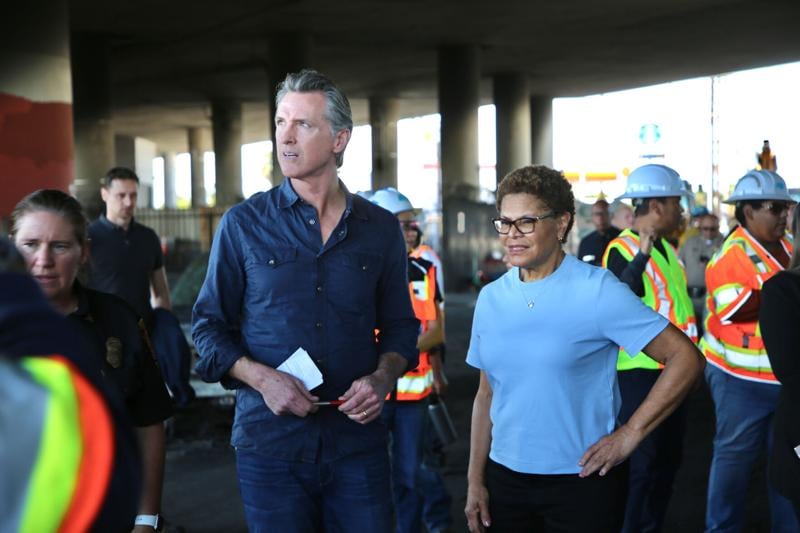City of Los Angeles City Controller Kenneth Mejia warned residents “LA is going broke,” noting the city has spent half its reserves in the past year. In April, the city faced a $476 million deficit, leading to major cuts to Mayor Karen Bass’s signature homeless-in-hotels “Inside Safe” program. However, concerns with rising crime also led to an increase in the police budget, a funding expansion Meija has strongly opposed.
“Just one year ago, the reserve fund was historically strong, at $648 million,” said Mejia on X. “Less than three months into this fiscal year, the city is again dipping into its reserves to pay for liability claims (already $170M over budget). It’s getting close to going below the 2.75% mark which when that happens, City Council must make a finding of a fiscal emergency”
Last month, the City of Los Angeles agreed to pay a $38 million settlement to the federal government for not making enough of its federally funded “affordable” apartments accessible for people with mobility, visual, and auditory impairments.
“The City needs honest budgeting: not inflated revenue projections, under-budgeting liability claims, & wishful thinking that civilian departments (whose budgets have been cut) can make do with barebones budgets while LAPD can routinely overspend without any spending controls,” continued Mejia on the city’s finances.
Mejia has taken particular focus on increases in police spending meant to target rising crime, pinning a Tweet on LAPD helicopter spending to the top of his profile on X, finding the program costs about $50 million per year.
The Republican Party, which has not had a mayor in Los Angeles since Rick Riordan between 1993 and 2001, laid the city’s financial situation and deteriorating quality of life at the hands of the Democratic party that has led the city since then.
“For all the high taxes we pay, Angelenos should live in a world-class city,” said LAGOP spokeswoman Roxanne Hoge to The Center Square. “Instead, Mayor Karen Bass and her party have given us decline at a very high cost.”
The 2028 Olympics in Los Angeles will put the city’s governance on full display, with a promise for the notoriously car-dependent city to host a “car-free” Olympics dependent on the city’s ability to finish major new public transit projects — including multiple train lines — before the start of the games.
One such project is the 2.25 mile “automated people mover” that is supposed to move people between the airport and LA Metro. The project started in 2018 with a 2023 service start date that has now been delayed until late 2025 or early 2026. The program’s costs could swell up to $3.3 billion if a new $400 settlement is approved for construction delays, on top of an existing $200 million allocated for lawsuits earlier this year.






